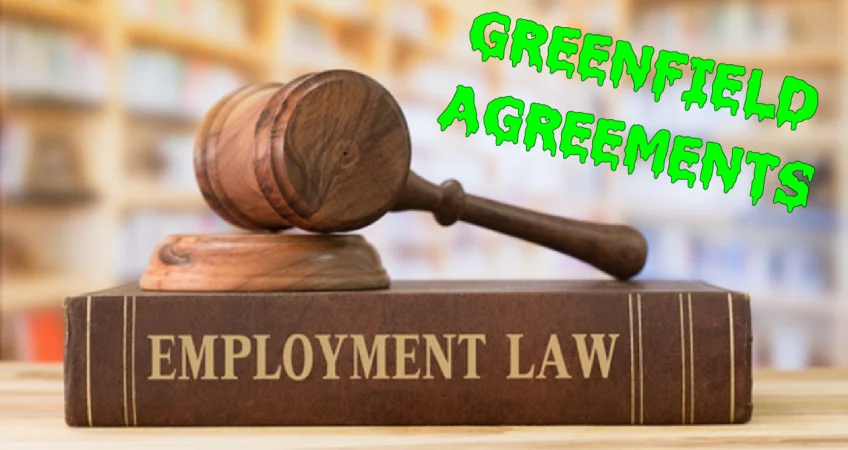The Fair Work Act 2009 explicitly limits the involvement of workers in the negotiation of Greenfield Agreements. They are, by design, agreements between an employer and Unions for a new enterprise before any employees have been engaged. That means:
- No rank-and-file workers are party to the deal.
- No industrial action can legally be taken to pressure better outcomes — because there are no employees yet to take that action.
- The only “power” in these negotiations is who the employer chooses to bargain with.
- Greenfield EAs are based on what in the market at the time they are made.
Born Without Workers, But Not Without Consequences
Saying workers are excluded — ignores the fundamental legal structure of the Greenfield process. You can’t claim a process is broken for excluding workers when the legislation itself excludes them by default.
Greenfield agreements are used when an entirely new business or project is starting — from major hospitals and resource projects to multi-billion-dollar infrastructure builds. While employers tout them as a tool for “certainty,” unions argue they amount to pre-emptive deals made without the very people they affect.
“These agreements are made in a vacuum — there are no workers to speak for themselves, and yet the terms of their future employment are being signed away,” said a senior official from the CFMEU.
Under the current law, greenfield agreements can only be made with unions — a safeguard intended to ensure some form of worker representation in the absence of employees. But even that limited protection has been the target of sustained employer pressure.
The Fight Over Reform
The union movement has long resisted attempts by conservative governments and business lobbyists to water down greenfield requirements. In 2020, the Morrison government introduced the Industrial Relations Omnibus Bill, which sought to let employers bypass unions if they felt negotiations were taking too long.
“The so-called reforms were a blatant power grab,” said ACTU President Michele O’Neil at the time. “They would have allowed employers to set wages and conditions unilaterally, without any genuine bargaining. That’s not negotiation — it’s coercion.”
While most of the bill was defeated in the Senate, a controversial clause allowing greenfield agreements to run for up to eight years — double the previous term — was passed. Unions warn this locks in outdated pay and conditions for almost a decade, even as project demands and labour markets shift dramatically.
A System Stacked Against Workers?
Greenfield agreements must still pass the Better Off Overall Test (BOOT), assessed by the Fair Work Commission, but unions say this isn’t enough.
“BOOT is meant to ensure workers are not worse off than under the award, but it’s applied without input from actual workers. It’s theoretical — not practical,” said a union legal adviser.
It is also important to remember that the award is so incredibly low, and the BOOT test is not hard to meet.
Many unions report employers “shopping around” for compliant union signatories and then presenting agreements as fait accompli to incoming workers. In extreme cases, greenfield deals have allegedly been used to entrench substandard wages under the guise of project certainty.
Where Labor Stands
The Albanese government has so far held off major changes to greenfield rules, focusing instead on broader industrial relations reforms like multi-employer bargaining and closing loopholes around casual work. But unions remain adamant: greenfield agreements are overdue for a serious rethink.
“We’re talking about billion-dollar projects that could support thousands of jobs,” said an ACTU spokesperson. “Those workers deserve a real seat at the table, not a pre-signed deal negotiated without their voice.”
As Australia ramps up major infrastructure and clean energy projects, greenfield agreements are becoming more common — and more contested. For unions, the issue is simple: the right to fair and democratic bargaining shouldn’t be postponed until after the ink is dry.

